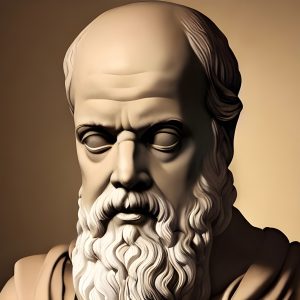Plato, the legendary ancient Greek philosopher, stands tall as one of the most profound and influential thinkers in the history of Western philosophy. Hailing from Athens, he emerged in 427 BCE, immersing himself in the teachings of Socrates while later shaping the brilliant mind of Aristotle. This academic lineage solidified Plato’s pivotal role in the evolution of philosophical thought.
The breadth of Plato’s works, presented in the form of captivating dialogues, spans a vast spectrum of subjects that ignite the imagination. From probing ethics and politics to delving into metaphysics, epistemology, and aesthetics, his intellectual prowess knows no bounds. Among his illustrious creations, “The Republic” reigns supreme, unveiling the very essence of justice and the utopian concept of an ideal state.
Plato’s philosophy stands as a testament to his unique theory of Forms, a radical notion that challenges our perception of the material world. According to him, our senses merely offer a distorted reflection of an immaculate realm filled with eternal and unchanging ideas. This groundbreaking concept would reverberate through the corridors of time, profoundly influencing subsequent philosophers and leaving an indelible mark on diverse academic disciplines, including theology, mathematics, and psychology.
However, Plato’s philosophical musings transcend the realm of abstract ideas. He fervently emphasized the vital significance of virtue and moral education, seeking to nurture individuals who would have a positive impact on society as a whole. His profound insights on education and the pivotal role of philosophers as guardians of the state continue to shape political and social theories, leaving an enduring legacy that spans centuries.
Remarkably, Plato’s intellectual brilliance remains as relevant today as it did over two millennia ago. His philosophical concepts continue to captivate the minds of contemporary thinkers, ensuring his place as a timeless figure in the expanse of human intellect.

